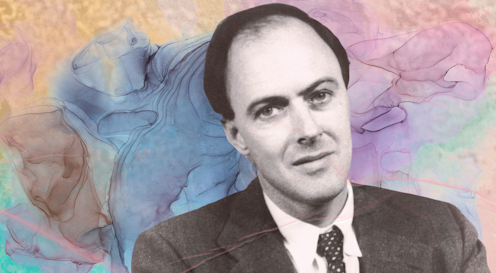rather than bowdlerising books on moral grounds we should help children to navigate history
- Written by Michelle Smith, Senior Lecturer in Literary Studies, Monash University

Although several of his best-known children’s books were first published in the 1960s, Roald Dahl is among the most popular authors for young people today. The recent decision[1] by publisher Puffin, in conjunction with The Roald Dahl Story Company, to make several hundred revisions to new editions of his novels has been described as censorship by Salman Rushdie[2] and attracted widespread criticism.
The changes, recommended by sensitivity readers, include removing or replacing words describing the appearance of characters, and adding gender-neutral language in places. For instance, Augustus Gloop in Charlie and the Chocolate Factory is no longer “fat” but “enormous”. Mrs Twit, from The Twits, has become “beastly” rather than “ugly and beastly”. In Matilda, the protagonist no longer reads the works of Rudyard Kipling but Jane Austen.
While the term “cancel culture[3]” has also been used to describe these editorial changes, there is actually a long history of altering books to meet contemporary expectations of what young people should read.
Should we consider children’s literature on a par with adult literature, where altering the author’s original words is roundly condemned? Or do we accept that children’s fiction should be treated differently because it has a role in inducting them into the contemporary world?
Bowdlerising literature
Thomas Bowdler’s The Family Shakespeare[4] was published in 1807 and contained 20 of the author’s plays. It removed “words and expressions … which cannot with propriety be read aloud in a family”, specifically in front of women and children.
“Bowdlerising” has since come to refer to the process of altering literary works on moral grounds, and bowdlerised editions of Shakespeare continued to be used in schools throughout the 20th century.
While Shakespeare’s works were not intended specifically for children, the fiction of Enid Blyton is a more recent example of bowdlerisation of works regarded as classics of children’s literature. There have been several waves of changes[5] made to her books in the past four decades, including to The Faraway Tree and The Famous Five series.
While Blyton’s fiction is often regarded as formulaic and devoid of literary value, attempts to modernise names and remove references to corporal punishment, for example, nevertheless upset adults who were nostalgic for the books and wished to share them with children and grandchildren.
Read more: Abused, neglected, abandoned — did Roald Dahl hate children as much as the witches did?[6]
How is children’s literature different?
Children’s literature implicitly shapes the minds of child readers by presenting particular social and cultural values as normal and natural. The term we use for this process within the study of children’s literature is “socialisation”.
People do not view literature for adults as directly forming how they think in this way, even if certain books might be seen as obscene or morally repugnant.

















